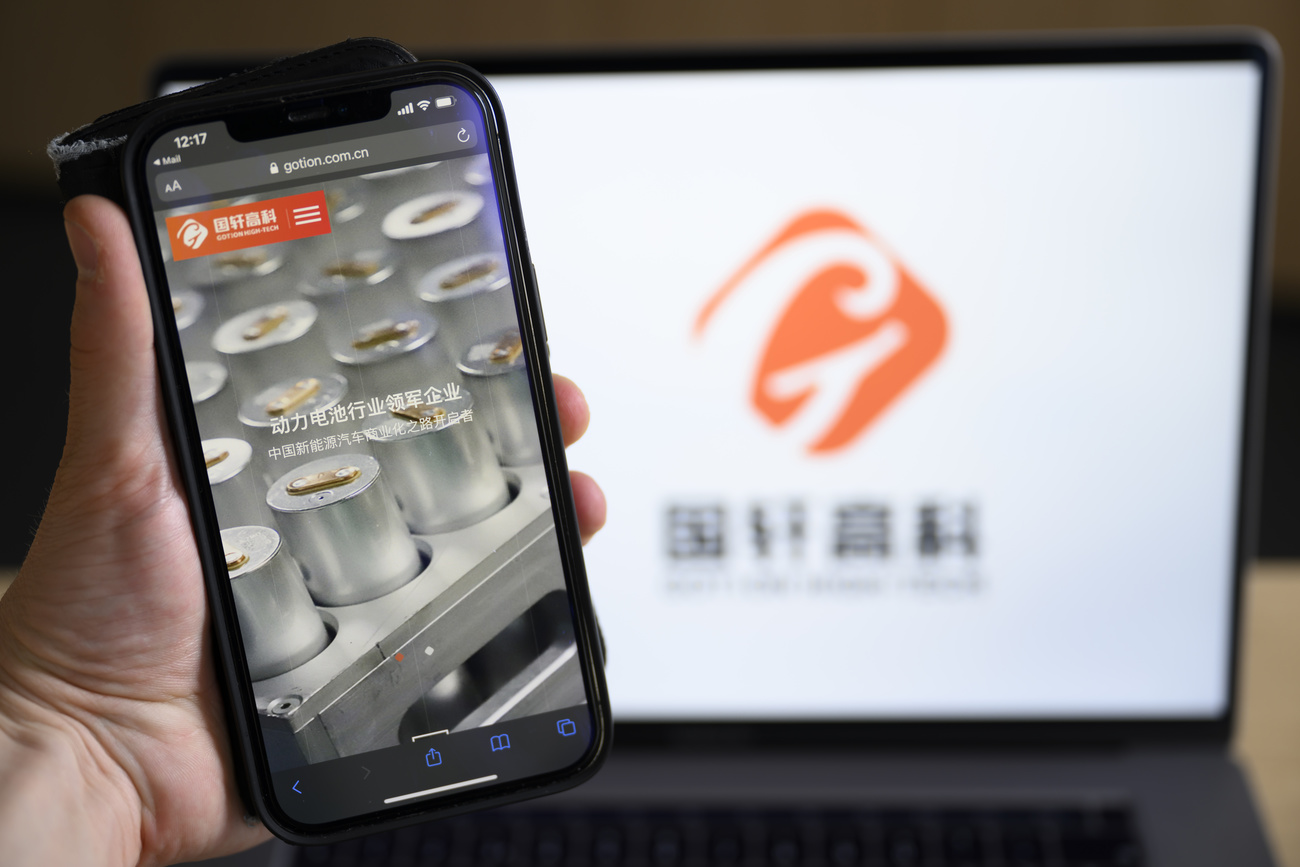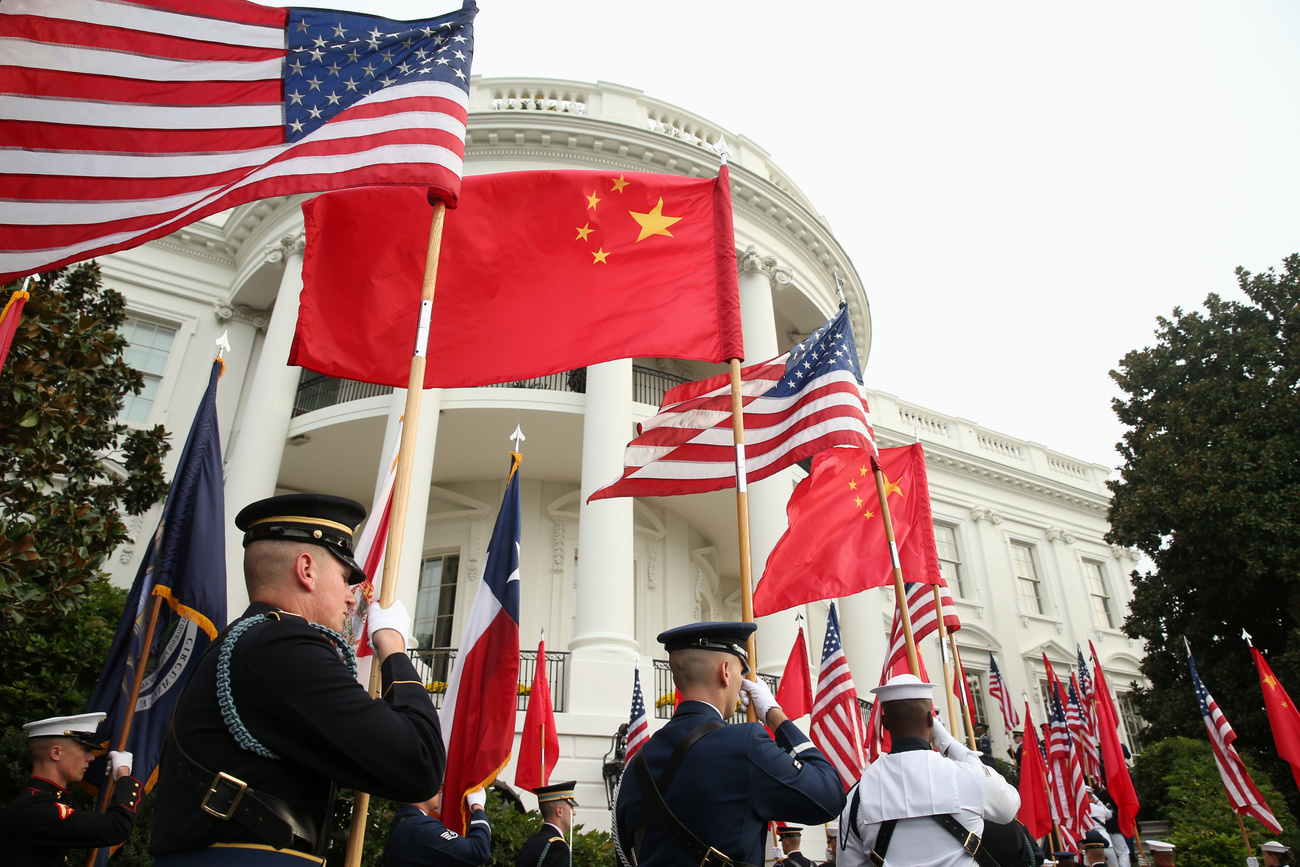Europe beats US on Chinese listings for first time

Chinese companies have raised more than five times as much money through share sales in Europe than the US this year, as exchanges in London and Zurich benefit from fraying geopolitical ties between the superpowers.
The fundraising haul marks the first time that Chinese corporate dealmaking in Europe has exceeded that in New York. It underscores the high stakes of a landmark audit inspection agreement between Beijing and Washington, which will be tested this month as the fate of about 200 Chinese companies’ listings on Wall Street hangs in the balance.

Five Chinese companies have raised more than $2.1 billion (CHF2.2 billion) on stock exchanges in Zurich and London this year, according to data from Dealogic. By comparison, less than $400 million in total has been raised from listings in New York.
Zurich, in particular, has benefited from a new “stock connect” scheme with mainland Chinese exchanges and its less demanding requirements over the transparency of company audits.
Chinese listings on Wall Street, which raised $12.4 billion in the first half of last year, were effectively shuttered in July 2021, when regulators in Beijing targeted ride-hailing app Didi Chuxing over cyber security breaches just days after its $4.4 billion initial public offering. By the time it delisted from the New York Stock Exchange 11 months later, Didi’s market value had fallen by about 80%.
The incident further soured a long-running dispute over US regulators’ access to Chinese audit files, which could lead to Washington banning trading in all Chinese companies in 2024.
Chinese IPOs delayed
Beijing has launched an overhaul of rules for Chinese companies listing overseas and cracked down on sectors from technology to education, adding to bearish sentiment among global investors.
The regulatory escalation has also damped Chinese corporate fundraising in Hong Kong. IPOs in the Chinese territory are at their lowest level in two decades, with hundreds of companies given the green light to list in the city delaying or abandoning their plans.
However, Hong Kong was still China’s largest offshore market with IPO fundraising totalling $6.6 billion this year, which is about 80% lower than a year ago.
The rush of deals on European stock exchanges is a result of “Chinese regulators saying the US dialogue is ongoing, the Hong Kong market is small, so let’s look at the European market — London, Switzerland and Germany”, said a partner at an international law firm in China that had worked on Chinese IPOs in Europe this year.
In July, exchanges in Shanghai and Shenzhen signed a deal for Chinese companies to carry out secondary listings on the SIX Swiss exchange via a “stock connect” scheme. Four Chinese companies have raised $1.5 billion since the scheme was launched.
Chinese financial groups have also been expanding their footprint in Europe’s financial centres. In June, the UK arm of CICC, a state-run investment bank, became the first Chinese member of the Swiss exchange, and last month, the chief executive of Huatai Securities, China’s second-largest broker, said the company planned to obtain licences to run equity deals in Zurich and Frankfurt.
Less red tape in Zurich
There has been one new Chinese listing in London this year. The UK capital has a similar “connect” scheme with Shanghai and hosted a secondary share sale for Ming Yang Smart Energy in July that raised almost $660 million. Qingdao Haier, the electronics manufacturer, raised about $330 billion in Frankfurt in 2018.
“Listings in Zurich and Frankfurt show Chinese issuers’ growing ability to access continental investors more directly,” said Jason Elder, partner at law firm Mayer Brown in Hong Kong.
However, he cautioned that the European share sales were unlikely to rival the flow of dealmaking by Chinese groups in New York, which raised more than $100 billion from share sales on Wall Street over the past two decades.
“I don’t see the stock connect deals in Europe as being in the same vein as what you get in the US,” said Elder.
A person involved in setting up the stock connect scheme between China and Switzerland said the arrangement was attractive to Beijing because it did not force Chinese companies to make their audit files available to Swiss regulators, in contrast to regulatory standards in the US.
Officials from the Public Company Accounting Oversight Board, the US accounting regulator, will travel to Hong Kong in mid-September to examine the audit working files of several Chinese companies listed in New York, including Jack Ma’s Alibaba and Yum China, which owns the KFC and Pizza Hut brands in China.
The PCAOB will determine at the end of the year whether China is compliant with US audit disclosure legislation. Chinese companies will be delisted from the US in 2024 if they are ruled non-compliant this and next year.
Copyright The Financial Times Limited 2022

In compliance with the JTI standards
More: SWI swissinfo.ch certified by the Journalism Trust Initiative











You can find an overview of ongoing debates with our journalists here . Please join us!
If you want to start a conversation about a topic raised in this article or want to report factual errors, email us at english@swissinfo.ch.